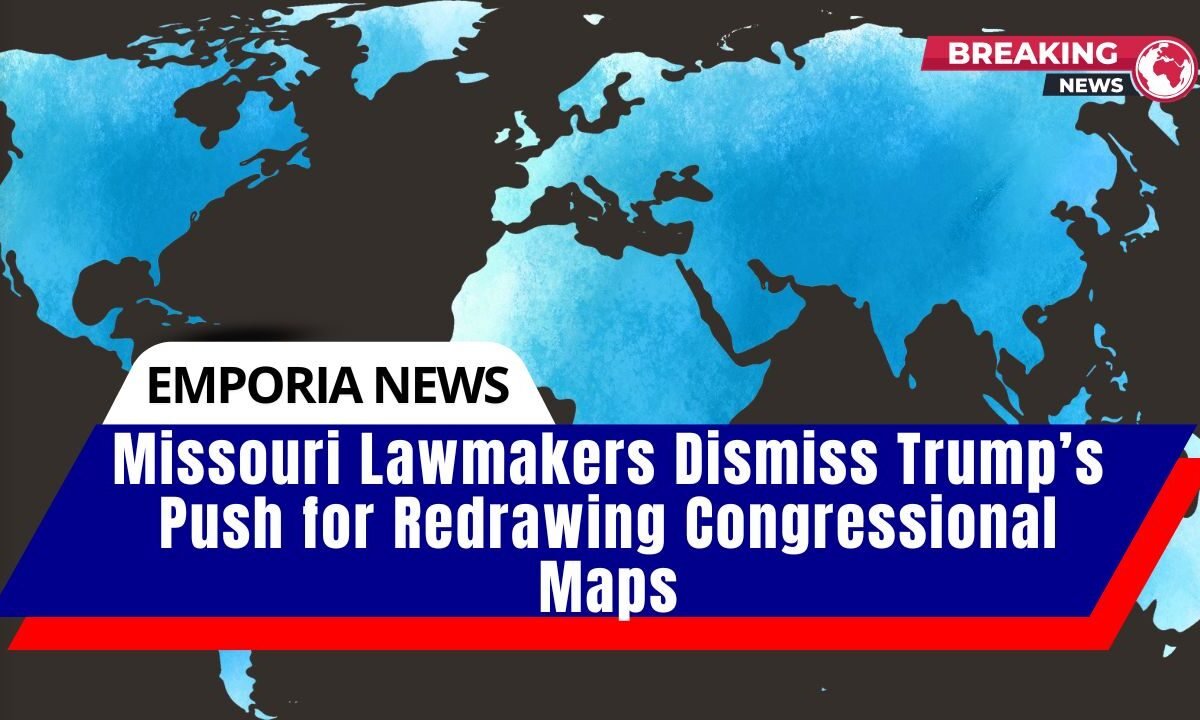As former President Donald Trump seeks to solidify the Republican Party’s narrow House majority, reports suggest he’s urging Missouri lawmakers to redraw the state’s congressional districts, specifically targeting the Democrat-held 5th District. However, key state officials appear unwilling to revisit the contentious redistricting battle from 2022.
State Leaders Show Reluctance to Act
When asked about the possibility of a new redistricting effort, Missouri Senate President Pro Tem Cindy O’Laughlin responded with skepticism, emphasizing that no formal request had been made.
“I know this is a topic being talked about in Washington, but no one has asked us to do anything about redistricting,” O’Laughlin said.
The report from Punchbowl News indicated that U.S. Rep. Bob Onder met with Trump’s team and came away convinced that they want Missouri to take action. The current congressional delegation stands at six Republicans and two Democrats, a balance unchanged since the 2010 census.
Opposition Across Party Lines
Senate Minority Leader Doug Beck, a Democrat from Affton, called any attempt to redraw district lines a “blatant power grab”, linking it to efforts to distract from controversies like the Epstein files.
House Speaker Pro Tem Chad Perkins reiterated that Missouri traditionally redraws maps every ten years following the census, stating:
“We’ve already done that. To do it again would be out of character with the way Missouri operates.”
The History of Redistricting in Missouri
During the 2022 redistricting cycle, Republican leaders faced internal strife over efforts to create a 7-1 GOP advantage by breaking up the Democratic 5th District, which encompasses Kansas City. Despite significant resistance, Rep. Emanuel Cleaver, a Democrat, retained the district with 60% of the vote.
Senator Mike Cierpiot, a Republican from Lee’s Summit, warned that any new redistricting effort could backfire:
“If it’s a map that puts multiple GOP seats at risk in a bad year, I’d have trouble supporting that.”
Tension Within the GOP
The 2022 redistricting struggle was marked by internal Republican conflicts, particularly between moderates and hard-right factions. Rep. Eric Burlison, who won the 7th District that year, said those efforts were driven more by personal animosities than strategy.
Friction between leaders like Bill Eigel and Cierpiot escalated to the point of near-violence during debates.
Still, some Republicans, such as Senator Mary Elizabeth Coleman, remain supportive of a renewed push:
“We should have written a 7-1 map in 2022. Our failure to do so almost cost the GOP the majority in Congress.”
Legal and Constitutional Hurdles
Legal experts argue that redrawing congressional maps outside the 10-year census cycle presents serious constitutional challenges. Justin Levitt, a law professor and redistricting expert, warned that any attempt would raise minority voter rights issues, particularly given that both of Missouri’s Democratic U.S. Reps — Emanuel Cleaver and Wesley Bell — are Black.
Levitt also highlighted that such actions could violate constitutional principles against partisan gerrymandering, even if they’re difficult to litigate at the federal level.
“Just because the courthouse doors are closed doesn’t mean shoplifting is legal,” he said.
Redistricting Push Goes National
With Republicans holding a slim 219-212 majority in the U.S. House, redistricting efforts are being explored in other states as well.
Texas may redraw its already favorable 25-13 map to gain five additional GOP seats. California and New Jersey governors have also hinted at retaliation through their own redistricting strategies.
Levitt believes Trump is “casting a wide net”, driven by anxiety about losing control in Congress.
While Trump’s advisors may be looking to Missouri as a potential target for increasing Republican representation, state lawmakers remain largely opposed to revisiting the divisive redistricting battle from 2022.
With legal questions, party fractures, and public resistance, any new map-drawing effort may face steep challenges in the Show-Me State.




